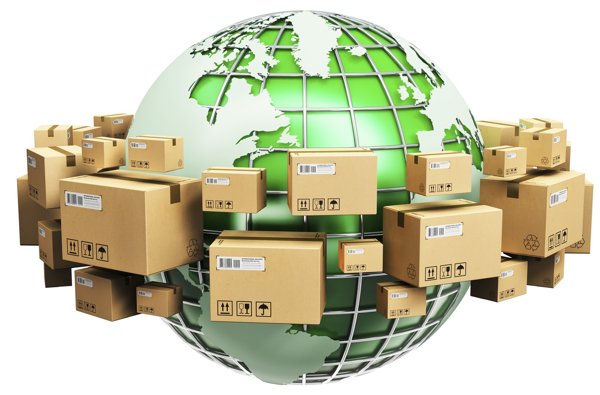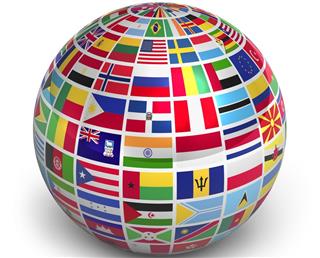
Doing business abroad is a lucrative career option, especially when you know that a foreign economy is booming and there is demand for certain type of products and services, that you can provide. But, doing business overseas never came without its obstacles.
With the economic disparity prevailing in the United States post-recession, it may seem like a brilliant idea to start a business in promising overseas markets such as India and China. However, entering and sustaining in the global business scenario is a lot more complicated than selling products and services in your home country. Gone are the days when business was as simple as buying and selling. Today, you have to take an extra leap. International business has become more dynamic than ever before and it is all about, “the survival of the fittest”. Whether it is a part of your expansion plans or a new start-up, doing business overseas needs a plethora of skills and sensibility. When you move to a new cultural setting to conduct business, you need the perfect balance of risk-taking and cautiousness. Yet, you need to be aware of the challenges or obstacles of doing business overseas. Say, you were to conduct a meeting with some businessmen from the Middle East and you show them a thumbs up as a signal to close the deal. Things are going to be downhill from there for you because you did not know that it is an offensive gesture in their country. See, that is what I am saying, you need to know what you are doing and what could happen.
Challenges of Doing Business Abroad
Political Chaos
Due to rise in incidences of terrorism that have occurred in the past, especially involving American citizens, there has been a lot of political drama between various international countries. This has obviously affected their trade relations, directly or indirectly. Doing your business overseas may make you a target of terrorism as well. Statistically, you are more likely to face such a contingency in a foreign land, in comparison to a person involved with the Federal Government, especially if you set up a physical business entity. Nevertheless, a favorable political situation between your home country and a potential foreign market could mean a blessing for your business.
Assessing the Potential
Like any business, you need to assess the potential of future dealings and the size of your earnings from a business transaction. However, a major challenge of doing international business is that, it becomes a lot more difficult to judge the equation because of your unfamiliarity with the business environment and the parties involved. You need to be careful because many entrepreneurs and businessmen wrongly evaluate the size of the market and expected sales turnover. An overseas business contract, you may have set your eyes on, may be a lot less appealing in reality than you may have perceived it to be. To avoid such a business faux pas, conduct a thorough market study of previous market trends, market forecasts, buyers’ reputation and financial cost patterns.
Understanding the Local Business Environment
There are different standards of quality in each country, with respect to the industry. A new business environment calls for a new set of business etiquette that must be timely learned. Also, employ the locals of the country where you are conducting your business. It will give your business an edge and make it more friendly for your customers as your employees will be familiar with the local business environment. Also, it is economical and will help you to blend in and fill the void of cultural differences between you and your customers.
International Logistics
Does your business entail the shipment of goods across international frontiers? Maybe you should enlist the services of a logistics company to trim out a few duties from your work tasks. Additionally, you will gain productive insight over the mechanism of logistics suitable for your company and a logistics company will be of great help to meet shipping requirements of the carrier.
Getting Accustomed to Cultural Differences
Every country has diverse cultural etiquette. Being unaware of them and committing a social faux pas can negatively affect your business dealings. Most businessmen admit to cultural differences being one of the biggest challenges of doing business overseas. It is very important to learn the cultural differences in international business because what may be acceptable in your country, could be regarded as being offensive in a foreign country. Also, it will help you to interact with your prospective clientage accordingly, as well as formulate a culturally sensitive tailor-made sales and marketing pitch.
Foreign Exchange Fluctuation, Financial Costs
Financial costs are an important aspect of business. One of the challenges of doing business internationally is that you need to overcome the barriers of foreign exchange fluctuation. Also, it is a smart move to clearly decipher the terms of payment before you close the deal. The split of the costs involved should be in sync with the norms as per the local markets. Ensure that you have a sufficient financial backing to provide a cushion for unforeseen financial mishaps. A word of advice, learn the negotiating etiquette followed in your business associate’s home country. Else, you might lose out on an opportunity due to miscommunication.
Always remember, if you plan to do business overseas, you need patience to create a strong base in a foreign country. Also, with time and experience, you will learn the ropes of the trade. If you need assistance and guidance to start your business overseas, you can reach any of the 115 American Chambers of Commerce Abroad (AMCHAM), affiliated to the U.S Chamber of commerce, that are located in over 102 countries around the globe. Consider this, English is an international language and a widely spoken one, but a person whose second language is English, may not necessarily understand it that well. Hence, it would help to learn the national language to overcome linguistic barriers with your business partners. While doing business overseas, you need to be sensitive and adopt an accommodating attitude. Remember, you’ll need to bridge the gap of not just geographical distances, but also of cultural differences.



















